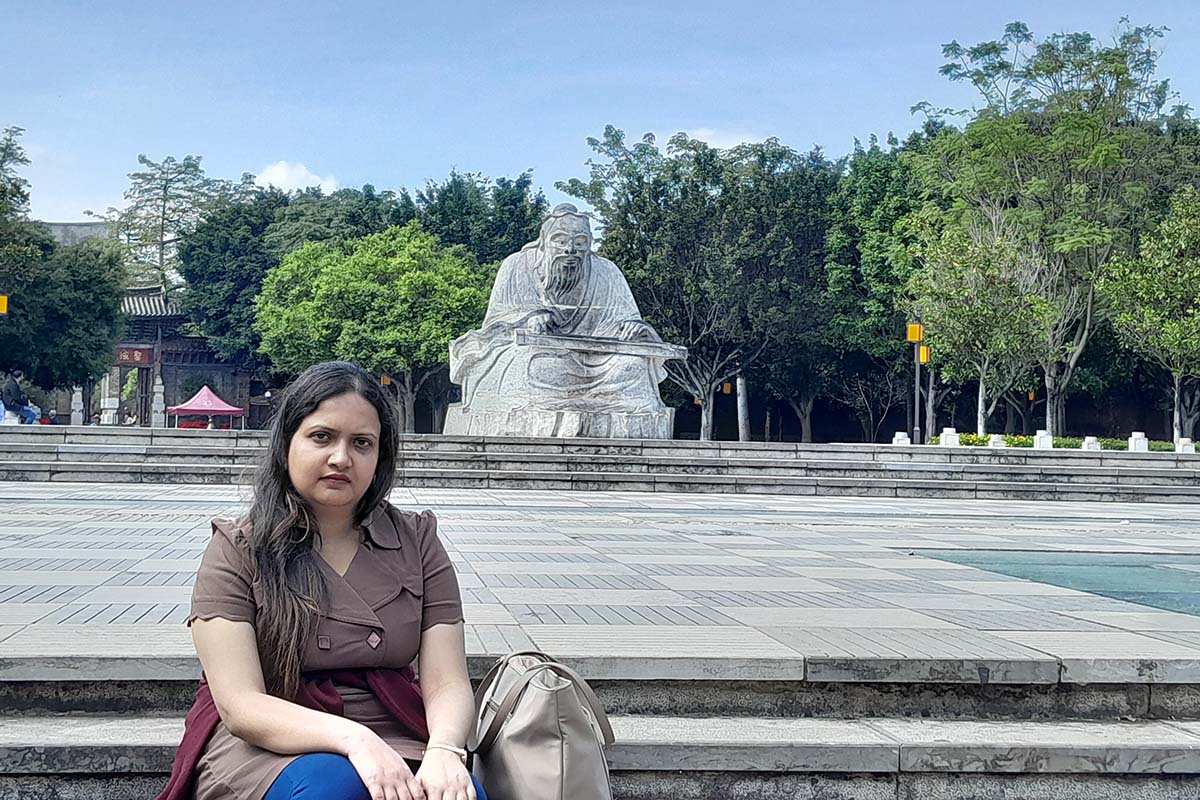Nigeria’s “State of the Union Address” in song
February 14 A popular singer has accurately captured some of Nigeria’s most concerning social,cultural and political issues, argues Laila Johnson-Salami, 22, a Commonwealth Correspondent from Lagos in Nigeria, who calls for national reorientation as the country prepares to go to the polls.
A popular singer has accurately captured some of Nigeria’s most concerning social,cultural and political issues, argues Laila Johnson-Salami, 22, a Commonwealth Correspondent from Lagos in Nigeria, who calls for national reorientation as the country prepares to go to the polls.
When one of Nigeria’s top artists, Falz, released his 2018 version of Childish Gambino’s ‘This is America’, titled ‘This is Nigeria’, a “State of the Union” address was delivered to the nation in just three minutes and forty three seconds. Although I don’t agree with all of the viewpoints of the singer, especially his stance on prostitution, or what is now known as “transactional sex” across Nigerian Twitter, his ability to fuel hard conversations that he and all of us can learn and unlearn from, is certainly worthy of credit.
Many citizens passionately felt the lyrics of the song addressed several pressing issues affecting Nigeria today, while others criticized and even threatened Falz for his take on national affairs and the nuances of his music, but his message still rocked the nation.
Falz’s 2019 album, Moral Instruction – has also raised questions that some have found offensive while others have found them to be relevant. Listening to Moral Instruction brought goosebumps to my skin. While all the songs had raw messages, the three tracks that resonated most with me are titled ‘Talk’, ‘Hypocrite’ and ‘Brother’s Keeper’. Talk is a song that raises several pressing issues in a direct and relatable manner. From our public officials spending more time on holiday than at work, to addressing the corrupt state of the Church today, Falz pleaded with Nigerians through music, telling us to continue speaking up about these heinous problems. Our voices matter as citizens and serve as a strong tool for change.
Hypocrite on the other hand focuses on Nigeria, a nation of almost two hundred million citizens, shackled by cultural biases and a hypocritical, conservative approach to life. While there is nothing wrong with having conservative views, we have created a society of people that are quick to judge and encourage the silence of others.
On the matter of hypocrisy, for example, last year President Muhammadu Buhari referred to many young Nigerians as lazy. His comments were found to be extremely hypocritical for several reasons. An example is the Not Too Young to Run bill, which although signed into law, was still amended to remove certain clauses, resulting in the dis-empowering of our young people who want to enter representational politics.
In a recent conversation, a source familiar with the writing of the bill, indicated that the bill initially included a clause that removed nomination fees from the requirements for politicians seeking to be elected . This was to ensure that larger parties would not be able to impose millions of Nairas in nomination fees on people who have an interest in running for office, but cannot afford to pay these fees. Surely, it is quite hypocritical to refer to a group of people as lazy, yet a bill is signed into law by the government that fallaciously gives young people the hope to run for political office but excludes them through intersectional systems of oppression, particularly classism in this case.
As we discuss the way forward for Nigeria during the current electoral period, we should be encouraged and hopeful for the future because of new cultures such as Nigeria’s alternative scene, which are challenging our stagnancy as a nation. We now need to make sure that we are addressing national reorientation urgently, and creating national policies that are befitting us.
Reach me on Twitter:@ljsonline
Photo credit: Oshodi, Lagos via Flickr. License
………………………………………………………………………………………………………………………………………………………………………
About me: I am a journalist, reporting on TV and radio as an anchor for Wazobia Max and Nigeria Info FM. I am also the founder of the We Rise Initiative, a non-governmental organisation empowering woman and girls to rise above 21st century oppression, and a member of the 67 Million Initiative – Nigeria’s most active youth organisation.
………………………………………………………………………………………………………………………………………………………………
Opinions expressed in this article are those of the author and do not necessarily represent the views of the Commonwealth Youth Programme. Articles are published in a spirit of dialogue, respect and understanding. If you disagree, why not submit a response?
To learn more about becoming a Commonwealth Correspondent please visit: http://www.yourcommonwealth.org/submit-articles/commonwealthcorrespondents/
…………………………………………………………………………………………………………………………………………………






